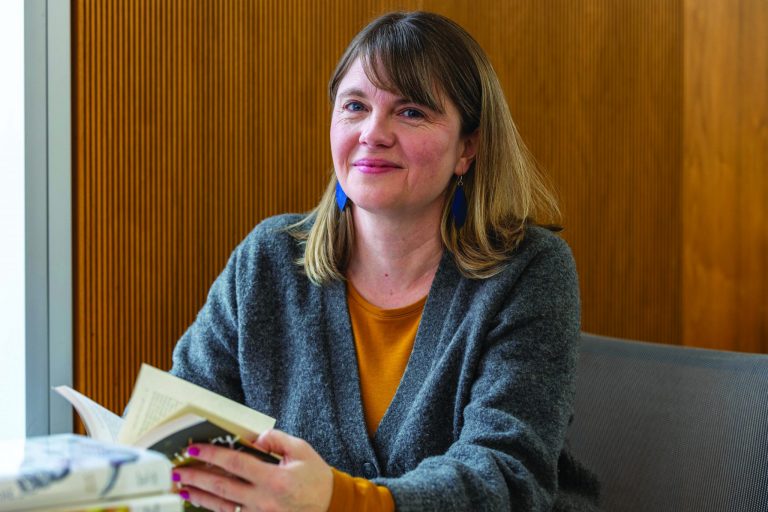Emily Urquhart builds her writing around the idea that folklore is a living tradition and an instructive tool.
On Nov. 1, Kitchener Public Library hosted Urquhart for the book launch of her latest essay collection, Ordinary Wonder Tales. The collection includes personal stories on death and dying, pregnancy and prenatal genetics, cottagers and plagues.
Urquhart’s writing is infused with her experiences from her time as a journalist and a student of creative writing, folklore and art history. She said her work doesn’t easily conform to any one genre.
Instead, she refers to her style as creative nonfiction. Urquhart said folklore stories show different ways of living and working out our problems and dealing with our fears.
“They have a closer sensibility to fiction than nonfiction, but that’s not what I’m doing necessarily. Folklore, in many ways, is synonymous with fiction. If someone says something to you, and you think, ‘oh come on, that’s folklore’—you’re telling them it’s fiction. But the study of folklore is really the study of truth,” Urquhart said.
Urquhart said she likes it when her books are accidentally placed in the fiction section. The stories can seem magical, but she said they explore our decisions and the consequences of those decisions.
“I was taking the stories of my life —that’s the ordinary part—and then I was looking at different aspects of folklore and what they might be able to tell me about the stories of my own life that I was telling,” Urquhart said.
In the essay “The Plague Legends”, Urquhart tells a story that takes place during the beginning days of the COVID-19 pandemic. She said she remembers those days as a time when everyone was scared, trapped in their homes and constantly doom scrolling.
Urquhart started to read legends about the Black Plague in the 1300s to entertain herself and noticed many similarities to the stories being formed with COVID-19. Many were stories about the plague’s origin and how to stay safe from it—the same type of stories that exploded during those early days in 2020.
“They echoed what I was finding on the internet, but they were more helpful because the fact that these stories exist tell us that people did survive the Black Plague and they went on to tell the story. So there’s hope just inherent in the fact that these legends exist,” Urquhart said.
In Ordinary Wonder Tales, Urquhart used folklore to explore things happening in her life and in the lives of those around her. The stories look at her experiences with the unknowns of pregnancy, dealing with a family member with dementia and the fears women deal with going through life.
She said that people often think of their own stories as fixed history, but they are a living tradition like folklore. Urquhart added that we are changing our stories every time we retell them.
“We always change little bits of the story even If we don’t intend to, because we’re using our own experience, which is a lot of what I do in my work,” Urquhart said.
Urquhart studied journalism and art history and worked as a journalist before deciding to return to school to pursue a masters and eventually a doctorate degree.
She graduated with her doctorate in folklore from Memorial University of Newfoundland in 2013 and her first book, Beyond the Pale: Folklore, Family, and the Mystery of Our Hidden Genes, was published in 2015.
Beyond the Pale was recognized as a finalist for the BC National Award for Canadian Non-Fiction and a Globe and Mail Best Book of 2015.
This January, Urquhart will be teaching a second-year course on genres of creative writing at the University of Waterloo (UW). She has previously taught creative nonfiction and said she is excited about branching out to teach poetry and short story writing.
Teaching at UW is a kind of homecoming for Urquhart. Her father was a professor of fine arts at the university, and Urquhart said she spent a lot of time on campus and in classrooms.

